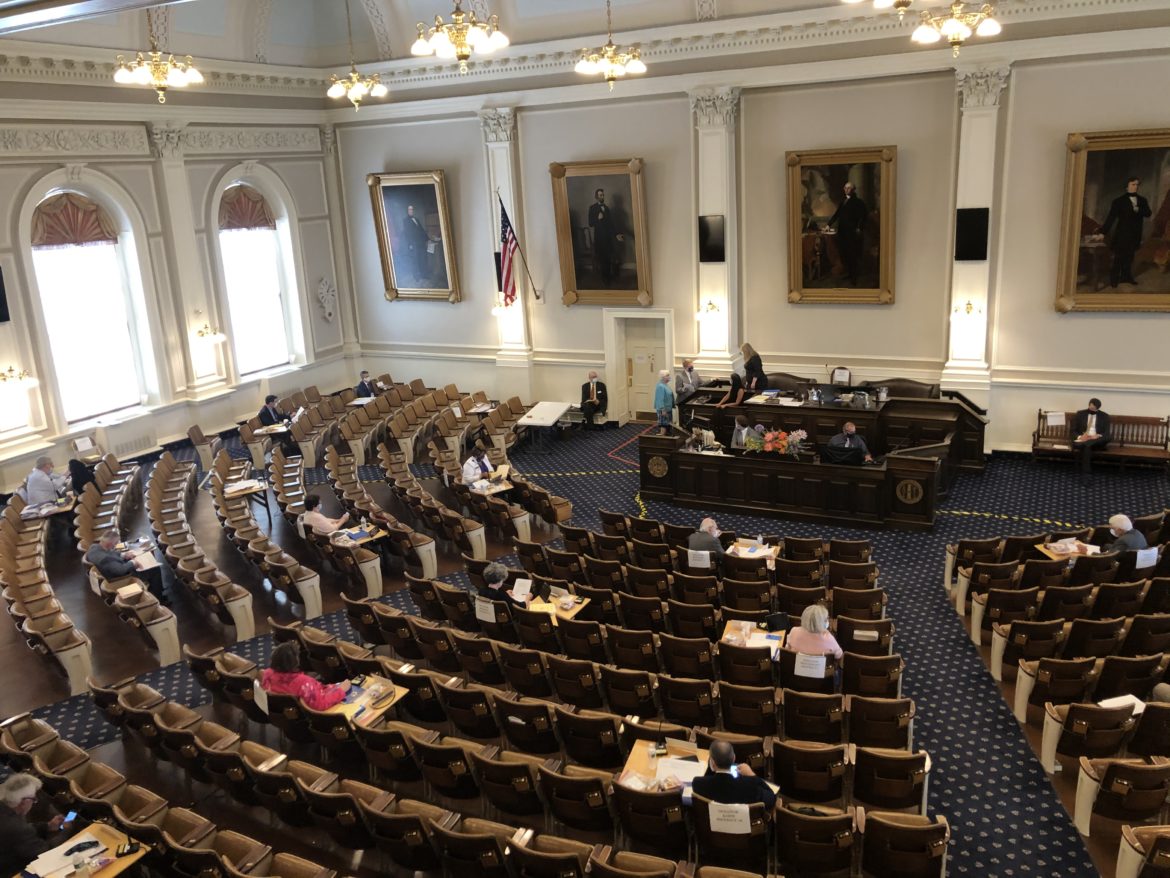By GARRY RAYNO, InDepthNH.org
CONCORD — Voters fearing for their health because of the coronavirus will be able to vote by absentee ballot this fall after the Senate unanimously approved temporary changes in the state’s voting statutes.
The changes in law are needed to implement recommendations of the Secretary of State’s Select Committee on 2020 Emergency Election Support in light of the COVID-19 pandemic.
“This is going to be — without a doubt — the most challenging election of my lifetime,” said Sen. Thomas Sherman, D-Rye, who served on the committee. “This will give the Secretary of State all the support he needs to implement all the recommendations and perhaps more, so everyone who wants to votes can do so safely.”
Under the bill, a box would be added to the absentee voter application for fear of COVID-19, allow a person to request absentee ballots for both the primary and general election with one application, and allows election officials to begin processing absentee ballots before election day but not open or count the ballots until the final tally election day.
A person would continue to be able to vote at the polls during the first hour the polls are open, while withdrawing his or her absentee ballot and would allow absentee ballots to be challenged after the outside envelope is open, but not the one containing the ballot.
And a provision allowing 10 or more voters to postpone processing absentee ballots until after the polls close would also be suspended for this year’s elections.
“The goal is to allow New Hampshire voters to vote in the safest manner possible,” Sherman said. “This will go a long ways to protecting New Hampshire voters and poll workers.”
The bill addresses concerns raised by town clerks and several members of the Senate Election Law and Municipal Affairs Committee about a provision to allow someone who arrives at the polls and then becomes afraid to go in because of COVID.
Clerks were concerned they could be overwhelmed if too many requests happen at the same time requiring clerks or other elections officials to help voters through the absentee ballot process.
At the public hearing on the bill last week, Hanover Town Clerk Betsy McClain suggested the section be dropped.
She said the anticipated additional absentee ballots cast in the general election will be challenging enough, and opening it up to COVID concern at the polling place could make it very difficult to respond.
Under the bill, the process would be simplified.
“No one should be forced to choose between their health and their right to vote,” said Senate Election Law and Municipal Affairs Chair Melanie Levesque, D-Brookline. “In HB 1266, we take necessary action to ensure that no eligible voter is prevented from participating in free and fair elections due to fear.”
Sherman said while the changes in law will allow the Secretary of State to implement the recommendations, some committee suggestions do not need legislative action, but are no less important.
“The critical idea is to ensure voters can vote in the safest way possible by fully supporting the absentee (ballot) process,” Sherman said.
He said that includes the state paying for return postage on absentee ballots, having drop boxes at the clerk’s office and instituting an electronically downloadable voting-by-absentee-ballot process.
A major public information campaign will be completed possibly sending an absentee ballot application to every registered voter and institute a timely process to inform a voter if his or her application is incomplete, he said.
“My expectation is the (Secretary of State) will fully implement all of the committee’s recommendations,” Sherman said.
The changes in the statutes will only apply to the 2020 elections.
The bill goes to the House, which meets Tuesday at the Whittemore Center at the University of New Hampshire’s Durham campus.
If the House approves, the bill will go to the governor.
Garry Rayno may be reached at garry.rayno@yahoo.com.





